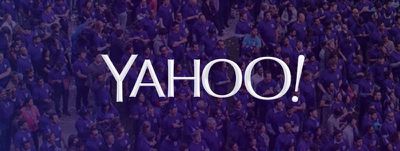Yahoo today announced that it believes more than one billion Yahoo user accounts were compromised in a hack by an unauthorized third party in August of 2013.
Information stolen from affected accounts includes names, email addresses, telephone numbers, birth dates, hashed passwords, and both encrypted and unencrypted security questions and answers. Clear text passwords, bank account information, and credit/debit card information were not believed to be accessed in the attack.

According to Yahoo, the hack was discovered after law enforcement officials provided the company with what appeared to be Yahoo user data from an unknown source. Yahoo says it has not been able to identify the specific intrusion, but it is "likely" distinct from a late 2014 hack that compromised more than 500 million Yahoo user accounts.
Earlier this year, Yahoo confirmed that "at least" 500 million user accounts were accessed in September of 2014, and this marks a second attack during the same general timeframe.
Yahoo is notifying users who may have been affected by the attack, and says it has "taken steps" to secure their accounts by implementing mandatory password changes. Unencrypted security questions and answers have also been invalidated.
Along with the 2013 hack compromising 1 billion user accounts, Yahoo has also announced that an ongoing outside investigation suggests an unauthorized third party accessed proprietary code to forge cookies, a technique that may have been used by the hackers responsible for the September 2014 attack. Those account holders are also being notified.
The outside forensic experts have identified user accounts for which they believe forged cookies were taken or used. Yahoo is notifying the affected account holders, and has invalidated the forged cookies. The company has connected some of this activity to the same state-sponsored actor believed to be responsible for the data theft the company disclosed on September 22, 2016.
Yahoo suggests users "review all of their online accounts" to check for suspicious activity and change any passwords that might have been used for a Yahoo account and another online account. Yahoo also recommends implementing two-factor authentication and avoiding links from suspicious emails.



















